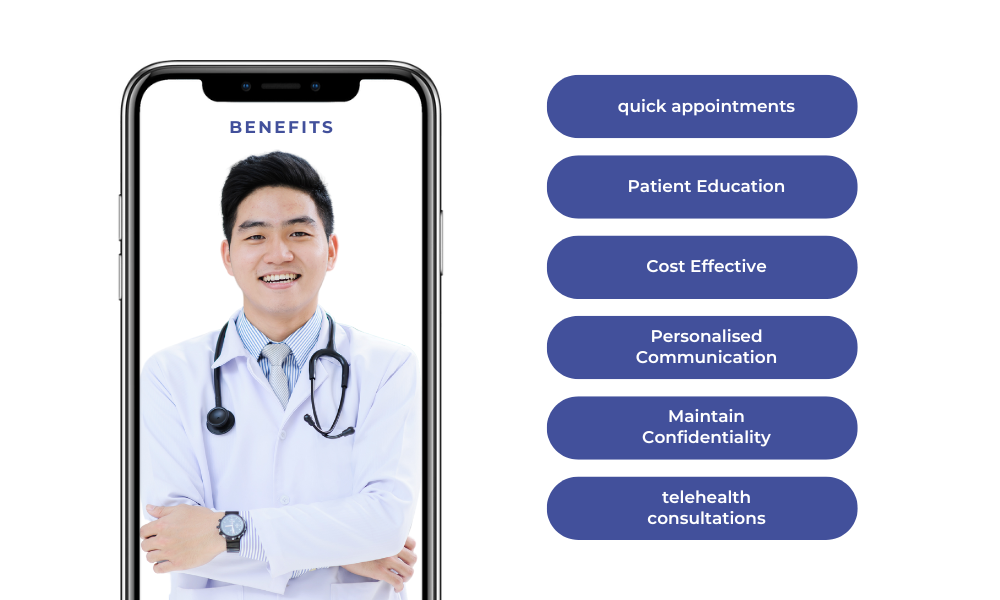Enhancing Patient Communication: The Role of WhatsApp in Healthcare
Effective communication with patients is more important than ever in today’s fast-paced world. The right communication will enhance patients’ satisfaction and lead to improved health outcomes. Such patients who are heard and understood are likely to follow the treatment plans and actively participate in their care.
WhatsApp is revolutionizing the way of communication between patients and their healthcare providers. Since WhatsApp is used widely, it has become a crucial tool in healthcare facilities to ensure better communication with patients. The following blog elaborates on various ways WhatsApp is assisting in proper communication and interaction between healthcare professionals and their patients.
The Importance of Effective Patient Communication
Effective communication in healthcare goes beyond information exchange; it’s about trust, compliance with treatment plans and hearing the patient. Studies reveal that when patients are involved in their care, they enjoy better health outcomes. Traditional modes of communication, such as telephone calls and emails can be quite problematic in this regard.
Patients frequently encounter long wait times for responses, which can lead to frustration and dissatisfaction. Moreover, important messages can easily get lost in crowded inboxes or forgotten after a rushed phone call. Many such obstacles can prevent good patient engagement and lead to worse health outcomes. WhatsApp can help eliminate many of these problems by providing a personal and more immediate channel of communication, in which patients can connect easily with their providers.
How WhatsApp Transforms Patient Communication
Real-Time Access
WhatsApp provides real-time access to healthcare providers, and queries are almost immediately answered. This kind of immediacy can boost patient satisfaction, as the patients get clear answers concerning their questions instantly. A patient who wants to recall medication instructions or ask about side effects from medication can send a brief message requesting clarification and has a reply almost simultaneously, providing peace of mind.
Multimedia Sharing
WhatsApp has made it possible to upload pictures, videos and documents through multimedia sharing. This allows sending a video about exercises to be performed as part of rehabilitation, providing a better understanding and adhering to the recommendation provided. Visual information can represent instructions better than simple text.
Accessibility
Accessibility is another important feature of WhatsApp. Patients can access the application on their mobile phones and their healthcare providers can send them messages anytime and anywhere. This can be especially helpful for follow-up questions or clarification of treatment plans. Patients feel empowered to reach out, fostering a sense of partnership in their care.
Key Features of WhatsApp for Healthcare Providers

Appointment Scheduling
Forget all that back and forth on the phone for appointment scheduling which can end up with frustration and confusion. Healthcare providers can schedule quick appointments and send reminders, resulting in fewer no-shows and enhancing efficiency. It would also save the time of staff for providing proper care to the patients since appointment reminders would be automatic.
Patient Education
Patient education is quite strong on WhatsApp as it allows providers to pass articles and videos, sending health tips to empower patients to manage their health. For example, sharing management materials for patients with chronic conditions can inform them of the best move and help them manage their health.
Telemedicine Integration
WhatsApp allows telehealth consultations through which a patient can seek their healthcare provider from the comfort of their home. This is especially convenient for patients in rural areas and those with impaired mobility. They can have medical advice and support without much hassle. Virtual consultations bring higher patient satisfaction and compliance with follow-up care.
Benefits of WhatsApp in Healthcare
Powerful Marketing Tool
WhatsApp is not just a means of communication but also a powerful tool for marketing, which increases patient engagement significantly. Sending personalized messages through WhatsApp helps healthcare providers make patients feel valued and connected to their providers. This personal touch encourages patients to continue their health journey.
Personalised Communication
Personal and direct communication results in a sense of security that is an essential component of healthcare. When patients think they can reach the provider directly, they are likely to reach the provider for their concerns and ask questions. Such openness can lead to better health results.
Cost-Effectiveness
WhatsApp is an affordable form of marketing compared to traditional methods. It allows healthcare organizations to reach a greater number of people without much investment. Healthcare providers can use this medium of communication with patients about wellness events, vaccination drives or new service offerings that can reach critical information to them promptly.
Best Practices for Implementing WhatsApp in Healthcare Communication
Establish Clear Guidelines
To maximize the benefits of WhatsApp, healthcare providers need to establish clear guidelines for communication. This ensures that staff and patients know how to use the platform effectively. Clear protocols can also help maintain professionalism and ensure that communication remains focused on patient care.
Staff Training
Training the staff is crucial to the success of implementation. Providers should be trained on the proper use of WhatsApp in communication, knowing its features and limitations. This can enhance the experience of the patients because the staff familiar with the platform would respond more efficiently and effectively.
Maintain Confidentiality
Maintain confidentiality and anonymity while using WhatsApp to communicate with patients. Healthcare organizations must comply with regulations such as HIPAA to protect patient information. Implementing encryption and educating staff on best practices can help protect sensitive data. Additionally, healthcare providers should inform patients about how their data will be used and protected while using WhatsApp.
Conclusion
WhatsApp is an innovative platform that can improve patient engagement in healthcare. With the applications of WhatsApp, healthcare service providers can enhance patient engagement, streamline communication and ultimately lead to better health outcomes. It is one of the most valuable applications in healthcare because of real-time communication, personalized interactions and efficient scheduling. If you are a healthcare professional who wants to improve communication with your patients, including WhatsApp in your practice is the key.
FAQs
How can WhatsApp improve communication between patients and healthcare providers?
WhatsApp can improve communication through real-time messaging, timely responses to patient inquiries and support for multimedia sharing.
Can I schedule appointments through WhatsApp?
Yes, a patient can directly schedule appointments with their healthcare providers through WhatsApp. This does not require long calls, minimizing no-shows with automated reminders.
How can healthcare systems appropriately implement WhatsApp?
Healthcare institutions can appropriately implement WhatsApp by establishing straightforward procedures for communication, educating the staff on how to use WhatsApp, keeping them up to date with any laws related to privacy and establishing patient responses in due time.
Can WhatsApp help reduce no-shows for appointments?
Sending automated reminders through WhatsApp greatly minimizes appointment no-shows. With such timely reminders, they never forget to come for scheduled visits.
What type of messages can healthcare providers share via WhatsApp?
Healthcare providers can share appointment reminders, educational material, test results, instructions for follow-up treatment and answers to inquiries from patients.
Related Blogs
Products
Industries
Resources
© 2025 The Maskchat
- Privacy Policy
- Terms of Use
Meta Business Partners




